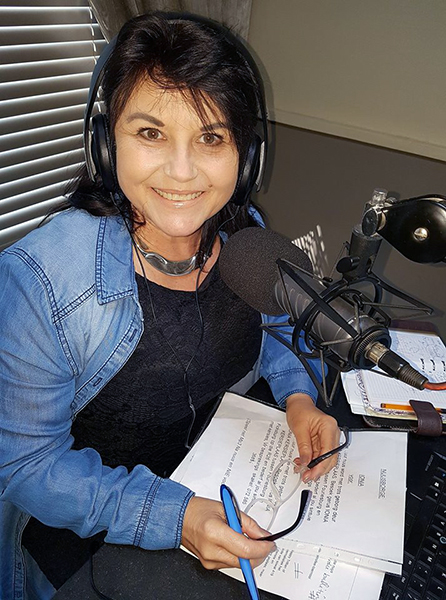Latest News Archive
Please select Category, Year, and then Month to display items
10 March 2022
|
Story Anthony Mthembu
|
Photo Unsplash
 The No Student Hungry team gearing up to start distributing food parcels to the selected students.
The No Student Hungry team gearing up to start distributing food parcels to the selected students.
The UFS is one of the many institutions of higher learning where food insecurity is an active issue. However, the
No Student Hungry Programme is one of the initiatives launched at the university to assist in fighting food insecurity at the institution.
The purpose of the programme
Since its inception in 2011, the initiative has assisted many students in acquiring a healthy meal. Additionally, the Food Environment Office also hands out food packages, so that students can continue to achieve academically. “We are trying to develop a healthy environment for students and make it easier for them to have a nice and healthy meal,” stated Annelize Visagie, who heads the Food Environment Office at the UFS. The Food Environment programme is spread out on all three campuses, each with its own facilitators. Furthermore, the programme mainly caters for students who are not funded by the National Student Financial Aid Scheme (NSFAS) but who are excelling academically. The abovementioned students apply for assistance online, and a list is then drawn up of students who receive assistance for the year.
Alternative solutions to keep the initiative running
On the Bloemfontein Campus, the No Student Hungry Programme will be catering for 200 students in the 2022 academic year, assisting them with a daily nutritious meal. Additional food parcels are also handed out to provide further assistance. “We give food parcels to the students on the list every Tuesday and Thursday at the Thakaneng Bridge,” Visagie highlighted. However, she argues that catering for the student population through this programme can be a challenge, as the demand for assistance is growing rapidly and the ability to assist is limited. The programme relies on partnerships and sponsors to assist the student body. In fact, the coordinators of the programme currently have a memorandum of understanding with Tiger Brands according to which they deliver around 100 food parcels for distribution.
In addition, the coordinators have put in place alternative measures to ensure that they can provide more food to students. “The
Kovsie Act Office, in partnership with the
Department of Sustainable Food Systems and Development, has started a food garden where healthy and nutritious produce are grown, in order to add value to the distribution,” she indicated. Although the programme can only assist to a point, students who are in desperate need of assistance are never turned away. In fact, the
Social Support Unit at Thakaneng Bridge usually assists students with food vouchers for a maximum of four days.
A commitment to teaching healthy eating habits
The programme is not only committed to curbing food insecurity, but also to ensuring that students have a healthy and balanced diet. As such, a booklet is being issued by the
Department of Nutrition and Dietetics in collaboration with the Department of Sustainable Food Systems and Development, which contains ways in which students can make a healthy meal using some of the ingredients offered in the food parcels.
“We want to teach students how to eat healthy in the cheapest way, because they don’t have a lot of money to buy expensive food products,” Visagie argued.
Academic volunteers time on community radio
2017-12-25

Dr Marian Human-Nel
Photo: Supplied
Superior Scholarship. Human Embrace. Institutional Distinctiveness. Emergent Leadership. Public Service.
These are the core values underpinning both the university’s academic and human projects. It is the last one, public service, that resonates well with Dr Marian Human-Nel. She does her part as a radio presenter and news reader on Maluti FM 97.1, a Bethlehem-based community radio.
“As a community radio station, we are not only responsible for entertaining and informing the public, but we also do a lot of community fundraising projects. We also do a lot of wellbeing activities in the Eastern Free State,” said Dr Human-Nel, Subject Head and Lecturer in the Department of Afrikaans, Dutch, German and French on the Qwaqwa Campus.
Sharing of information and knowledge
Dr Human-Nel volunteers her services as presenter of two programmes. “I present Kollig in which I invite my Qwaqwa Campus colleagues and professionals in the community to talk about their specific fields of interest and research. The focus here is on information and sharing knowledge. We have a slot called ‘This Week in History’ written and prepared by my colleague from the History department.”
Another show that Dr Human-Nel presents is called Fluit-Fluit Storietyd on which she reads and does voice performance of Afrikaans short stories and poems with specific music. “The Fluit-Fluit programme informs and entertains through cultural activities,” she said.
Maluti FM broadcasts over a 160-kilometre radius around Bethlehem and is also available online.